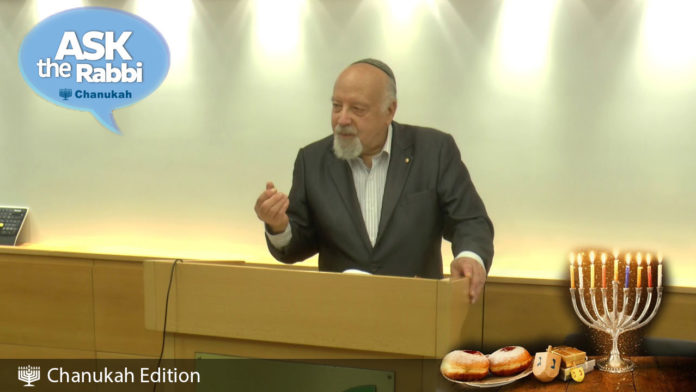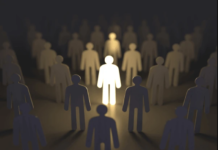
Rabbi Apple served for 32 years as the chief minister of the Great Synagogue, Sydney, Australia’s oldest and most prestigious congregation. He was Australia’s highest profile rabbi and held many public roles. He is now retired and lives in Jerusalem. Rabbi Apple blogs at http://www.oztorah.com
DIDN’T THEY KNOW ABOUT CHANUKAH?
Q. The Talmud asks “What is Chanukah?” Didn’t the rabbis know?
A. The question is indeed asked in the Talmud in tractate Shabbat 21b (cf. Megillat Ta’anit 9).
Strangely, no such question is asked about the other festivals (there is a great deal in the rabbinic sources about Purim, the other “minor” festival, yet nowhere do the sages ask, “What is Purim?”).
Nonetheless the Talmud is well aware that Chanukah is a festival of lights, since it discusses the laws of the lights in a number of places (e.g. Shabbat 22a, Bava Kamma 62b, Middot 1:6).
The discussions have a specific angle on the story: there was a flask of oil that kept on keeping on, so we remember it by kindling lights each evening.
Nothing about Judah the Maccabee, no reference to Maccabean heroism. The military and political factors might well never have happened, and that is probably the reason for the “What is Chanukah” question.
The sages asked their question because they knew what answer they wanted to hear, that there had been a religious crisis – the pollution of the Temple – and there was a spiritual answer – God ensured that the sanctuary could be restored and re-opened.
WHAT STARTED THE CONFLICT?
Q. Why did Antiochus oppose Judaism – was he a straight-out antisemite?
A. The persecution was due to a variety of factors. Antisemitism is one of them but not the only one.
The commonest view is that the king’s actions fitted in to his overall policy of hellenising the kingdom. It was not a specifically anti-Jewish policy but the Jews were part of its effects.
I Maccabees 1:11 says, “The king wrote to his whole kingdom for all to become one people and for each to abandon his own customs”. This meant that Jewish practices were to be abandoned and heathen shrines were to be set up in the Temple and throughout the land.
The king’s concern, however, was more than merely religious and cultural. It was political, since he wanted his control of the whole kingdom to be firm and stable.
There were also personality dimensions, which is why his desire to be Antiochus Epiphanes, “Divine Antiochus”, was mocked by those who called him Antiochus Epimanes, “Crazy Antiochus”.
Another interpretation ascribes much of the problem to the Jews themselves or rather the Jewish hellenists amongst them, the “mit’yav’nim”, who urged assimilation and went even beyond what the king had instigated. However, it is unlikely that the “mit’yav’nim” were so many and mighty that the king would fight their fight for them.
It is more probable that the internal conflict within the Jewish community led the king to conclude that the realm was in uproar and needed to be harshly put down.
CHANUKAH IS BETTER AT HOME
Samson Raphael Hirsch reminds us that it is more important to kindle the Chanukah lights at home than in the synagogue. The rule is “ner ish uveito”, “a light in one’s own house”.
No matter how impressively the rabbi speaks or how beautifully the chazan sings, this is no guarantee, says Hirsch, that Judaism will survive: “The important thing is how your children and babies prattle, whether the Jewish spirit shines in them, whether Jewish sap flows in their veins, whether the Jewish way of life is their education – on this depend victory and deliverance.”
Hirsch is emphasising an aspect of Jewish education which we often ignore. Formal instruction at school will never be enough without a Jewish basis in the home.
If children go through their early infancy taking it for granted that a family has Shabbat candles and Kiddush, a Seder on Pesach and a sukkah on Sukkot, a chanukkiyah on Chanukah and the Shema twice every day, those children will be safe as Jews.
In Hirsch’s words, “the Jewish way of life is their education”.









